“Don’t chew your worries, your fear, or your anger.
If you chew your planning and your anxiety, it’s difficult to feel grateful for each piece of food.
Just chew your food.”
– Thich Nhat Hanh, Buddhist Monk & Author
Digestive issues are becoming increasingly common.
Mild to moderate indigestion, bloating, heartburn and acid reflux are becoming commonplace discomforts we learn to deal with on a daily basis.
Even more serious gastrointestinal disorders such as IBS (irritable bowel syndrome) and inflammatory bowel diseases (IBD) such as Crohn’s disease and ulcerative colitis seem to be on the rise.
What’s even more worrisome is that these digestive conditions have also been linked to anxiety disorders and chronic stress.
What does this tell us?
That emotional states are intimately connected to the digestive system.
They’re referred to as gut feelings for a reason.
The good news is that if emotional well-being and mental health impact gut health, then we have the power to improve the environment in our gastrointestinal tract…
The Brain-Gut Connection:
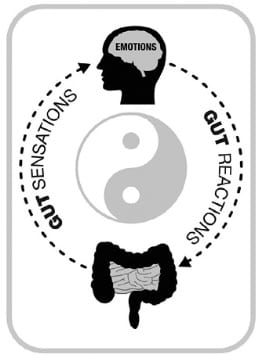
“Anything that affects the gut always affects the brain.”
– Dr. Charles Major
You’ve got a second brain in your digestive tract.
This gut-brain is comprised of over 100 million nerve cells and is referred to as the Enteric Nervous System (ENS). (1)
Your ENS is intimately connected to your Central Nervous System (CNS), which includes your head brain and the spinal cord.
The brain in your head is in constant communication with your gut-brain.
You might think that the head brain bosses the gut-brain around but really studies show that 90% of the communication is happening from the gut to the head brain and not the other way around. (2)
As if this weren’t enough, you also house an entire universe of gut bacteria in your gastrointestinal system.
These 100 trillion gut bugs create what’s known as your gut microbiome and they impact your mental and overall health in very interesting and specific ways.
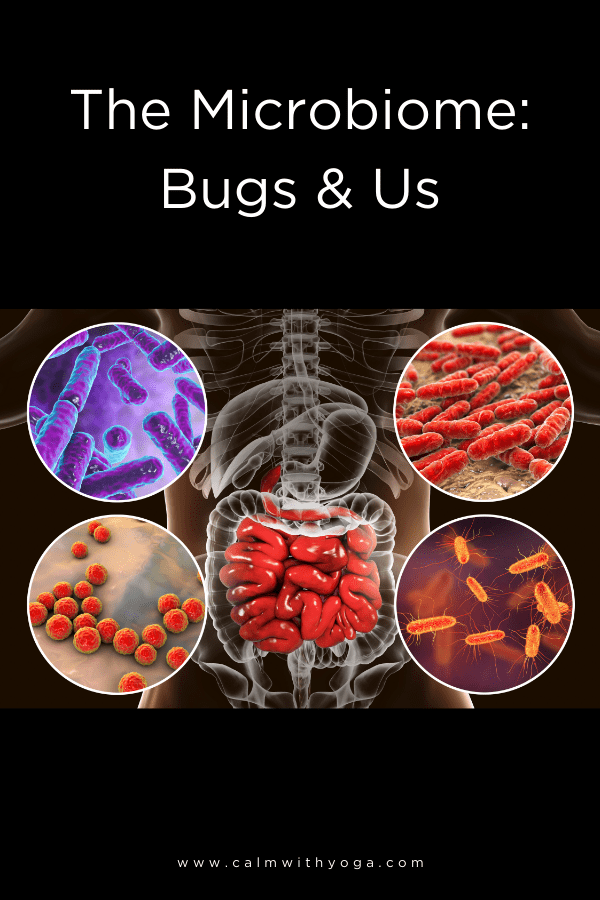
These gut microbiota can be categorized into two groups:
1 – Beneficial gut bugs (probiotics) that help us thrive.
2 – Harmful gut bugs that can create disease and inflammation in the body.
All of these factors influence our immune function since about 80% of your immune system is located in the folds of your gut.
This often leads to gut inflammation and worsening of digestive issues.
How Emotions Impact Digestion:
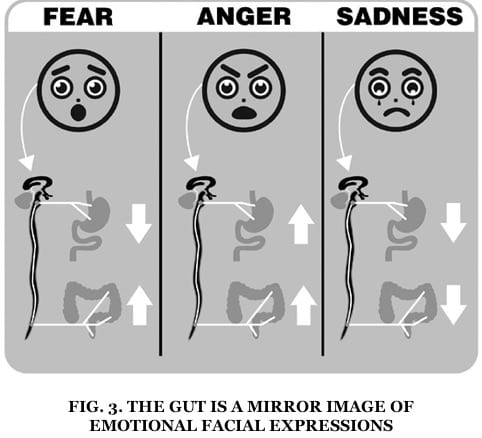
“Expression of our emotions occurs in the different regions of the GI tract.”
– Dr. Emeran Mayer gastroenterologist & author of ‘Mind-Gut Connection’
Fear, anger, anxiety, and sadness impact our stomach and intestines and can slow down or speed up digestion.
This can interrupt the harmonious flow of our gut’s delicate rhythm.
When we’re in a constant state of anxiety, stress, and overwhelm (and throw in there underlying anger, sadness, and fear, too), we’re in chronic stress mode and stress hormones are running the show.
The sympathetic nervous system’s stress response (‘fight or flight’ response) slows down digestion by inhibiting the stomach and intestine function.
Not digesting your food properly can lead to more gas, bloating, acid reflux, and even nutritional deficiencies.
Improve Digestion By Practicing Mindful Eating & Pranayama (Yoga Breathing):
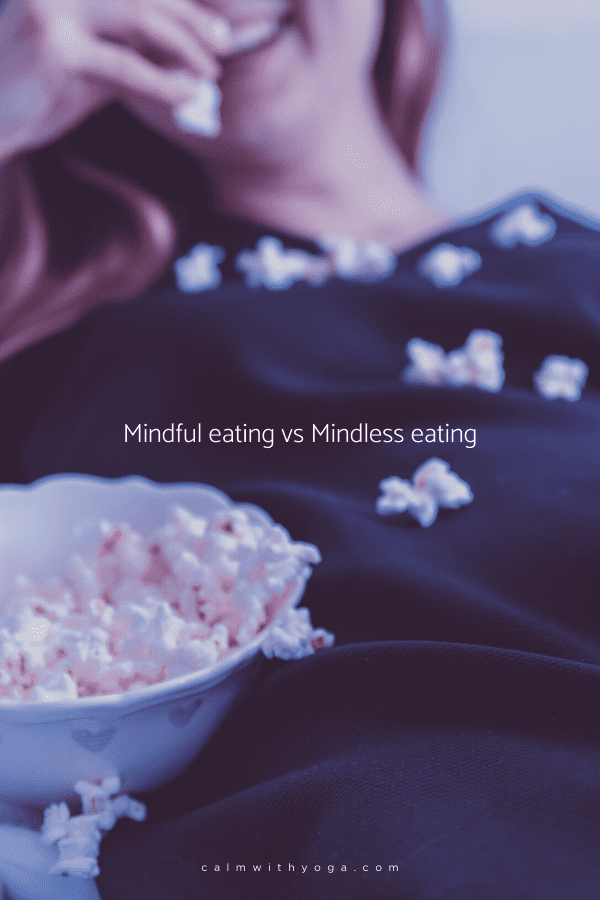
“Mindful eating replaces self-criticism with self-nurturing.
It replaces shame with respect for your own inner wisdom.”
– Roshi Dr. Jan Chozen Bays, Pediatrician, Zen Buddhist Teacher, & Author
It’s not a good idea to eat when you’re feeling overly stressed, anxious, or angry because your food won’t be broken down and digested as well as it should be.
Since the stress response reduces digestive function it’s a good idea to pause and shift your state before your gut interacts with food.
Both mindful eating practices and yoga breathing have been shown to reduce the stress response by activating the body’s relaxation response.
Coincidentally, another name for the relaxation response is the “rest-and-digest” response.
The relaxation response helps turn optimal digestion on.
It also helps the thinking centers of the brain come online so you can make wiser, better, and more conscious food choices.
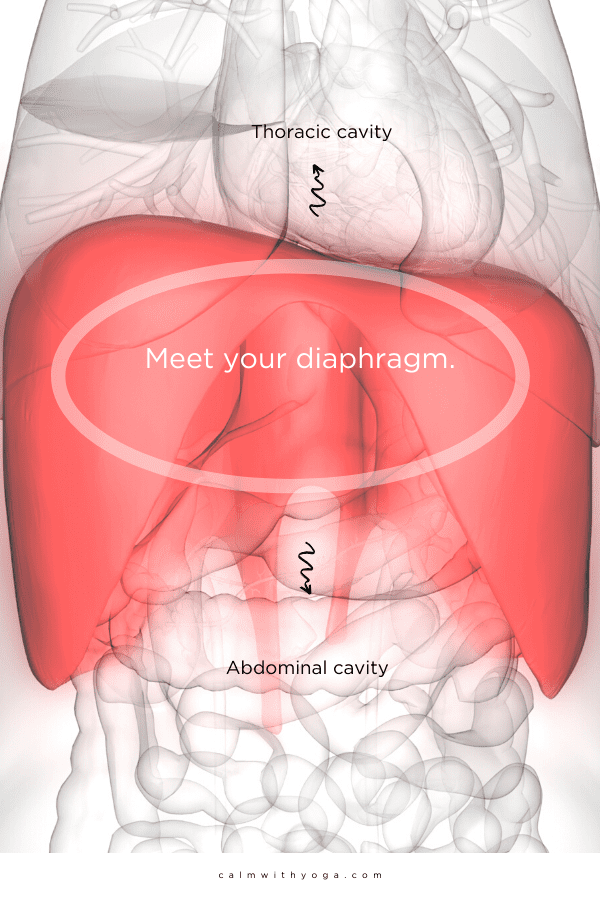
To activate this rest-and-digest response simply dedicate 3-5 minutes to intentional belly breathing before mealtimes.
Belly breathing engages the diaphragm, the dome-shaped muscle that sits under your lungs and above your digestive organs.
When you inhale and exhale it expands and contracts to create a massage-like motion that is beneficial for digestion.
It’s also a way to activate the Vagus nerve, which is the most important nerve involved in the relaxation response.
“A small yet growing body of research suggests that a slower, more thoughtful way of eating could help with weight gain and maybe steer some people away from processed food and other less-healthful choices.
This alternative approach has been dubbed “mindful eating.”
It’s based on the Buddhist concept of mindfulness, which involves being fully aware of what is happening within and around you at the moment.
In other areas, mindfulness techniques have been proposed as a way to relieve stress and alleviate problems like high blood pressure and chronic gastrointestinal difficulties.”
– Harvard Health
For optimal digestion, pair belly breathing with mindful eating practices that support wise food choices and eating habits such as eating slowly, thoroughly chewing your food so it breaks down more easily, and becoming aware of your body’s fullness cues so you don’t overeat and overload your digestive system.
REFERENCES
:
(1) https://www.sciencemag.org/news/2018/09/your-gut-directly-connected-your-brain-newly-discovered-neuron-circuit
(2) https://www.sciencealert.com/you-have-a-second-brain












